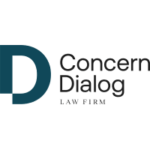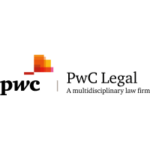-
What are the main methods of resolving disputes in your jurisdiction?
In Denmark the main methods of dispute resolving is litigation handled by the civil courts. Large commercial disputes are, however, often resolved by arbitration via either the Danish Institute of Arbitration or the Danish Building and Construction Arbitration Board. Alternative despite resolution such a mediation is not very common. The Danish Mediation institute can assist in mediation and appoint mediators upon request. The courts also offers mediation.
I 2024 the local courts received 55,069 civil lawsuits.
-
What are the main procedural rules governing litigation in your jurisdiction?
Litigation is governed by the Danish Civil Procedure rules and guidelines out by the Courts.
The most recent consolidated Danish Code of Civil Procedure Act is Act no. 1160/2024.
The courts website www.domstol.dk makes available a number of guidelines on how to handle civil cases.
Civil cases are handled online on the court portal www.minretssag.dk and writs pleadings and exhibits have to be submitted to the court via the court portal by the use of certain written form available on the portal. Deadlines are also handled via the portal. Case management meeting are usually handled via phone whereas hearings are usually oral.
A writ and a reply to a writ have to adhere to certain minimum standards otherwise the claim or the reply respectively will be dismissed.
The main guiding principles for Danish civil procedural rules are
- the principle of contradiction meaning the party shall have the opportunity to contradict submission from the other party.
- The principle of negotiation meaning the court can only base its decision on the arguments and documentation presented to the court by the parties and not make decisions based on evidence or allegations not presented to the court.
- The principle of disposition meaning the parties right to present and adjust their claim as they see fit and make inter-partes agreements on how to limit their disagreements or how to proceed with their claim – with certain exemptions.
- The principle of preclusion meaning a party can forfeit its right to present an argument of evidence if not presented with in time.
-
What is the structure and organisation of local courts dealing with claims in your jurisdiction? What is the final court of appeal?
Denmark has 24 local county courts which deal with both civil and criminal cases, two high courts, (Appeal Courts) one Maritime and Commercial Court and one Supreme Court (the final Court of Appeal).
Civil claims have to be submitted to the local county court as the court of first instance via the court portal.
If a claim has no value or the value is less than DKK 100.000,- the claim will be handled according to a simplified set of procedural rules set out in chapter 39 of the Civil Procedural Act. The parties may agree not to use the simplified procedure.
The Maritime and Commercial Court handles cross-border claim, maritime claims or other disputes related to transport law as well as intellectual property right claims as a first instance court.
The decisions of a local county court can be appealed to one of the two Danish High courts. Decisions from local courts in western Denmark are appealed to the Western High Court, whereas decisions from local court in the eastern parts of Denmark are appealed to the Eastern High Court.
If the value of a claim is less than DKK 50,000 the local court’s ruling can only be appealed if permission to appeal is granted by the Appeal Board.
If a case has been heard in both a local court and the Hight court it can only be appealed to the Supreme Court if permission is granted by the Appeal Board.
The Appeal Board only grants permission if the case is about principles of law as opposed to a case mainly based on evidence.
If a case is about principles of law or is of general importance to society as a whole, then the local court can refer the case to the High Court as a first instance court upon request from one of the parties.
Cases about employment law or Intellectual property rights may be referred to the Maritime and Commercial Court.
In the event a case has been heard by a High Court in the first instance, it can be appealed to the Supreme Court without permission from the Appeal Board.
In the event a case has been heard by the Commercial and Maritime Court as a first instance court, it can only be appealed to the Supreme Court if the case is about principles of law or is of importance to society as a whole. Otherwise the correct appeal court is the High Court.
-
How long does it typically take from commencing proceedings to get to trial in your jurisdiction?
Both the local civil courts and the High Court are very busy and it can take more than a year from the date a case is ready to be presented to the court at an oral hearing, till the hearing takes place, especially if the hearing takes more than one day.
-
Are hearings held in public and are documents filed at court available to the public in your jurisdiction? Are there any exceptions?
Civil case hearings are public and members of the public may attend a hearing. Documents and exhibits submitted to the court and filed on the court portal are not public. The public does not have access to the court portal.
There are no exceptions to this other than in the event an attendee at a court hearing does not act respectfully, he or she will be asked to leave the court room.
-
What, if any, are the relevant limitation periods in your jurisdiction?
In Denmark the general limitation period is 3 years from the date a claim fall due with an absolute 10 years limitation period in the event the claimant did not know of the claim and for personal injury claims a 30 years absolute limitation period.
Limitation is regulated by the Danish Limitation Act. Certain additional rules apply to insurance claims as regulated by the Danish Insurance Contracts Act. Maritime claims and certain other transportation claims are subject to a 1 year limitation.
-
What, if any, are the pre-action conduct requirements in your jurisdiction and what, if any, are the consequences of non-compliance?
With respect to debt collection the creditor shall send a notice to the debtor allowing the debtor 10 days to pay the debt prior to initiating legal proceedings.
With respect to other civil or commercial disputes it would be customary the send a claim letter prior to initiating legal proceedings, but the court will not dismiss the claim if such claim letter has not been send.
In the writ the claimant is obliged to mention if the parties have tried to negotiate prior to the lawsuit.
The court of first instance is obliged to try to encourage the parties to negotiate at some stage during the pre-trial process, but the court cannot force the parties to negotiate. There are no consequences of not having negotiated prior to the lawsuit.
The court can offer mediation as an alternative to a court hearing.
-
How are proceedings commenced in your jurisdiction? Is service necessary and, if so, is this done by the court (or its agent) or by the parties?
Legal proceedings are commenced by submitting a writ to the local court. Usually the court in which the defendant is domiciled unless otherwise agreed between the parties.
The claimant shall ask the court to serve the writ on the claimant and provide the court with relevant contact details and either a company registration number if the defendant is a company or a personal ID number if the defendant is an individual.
The writ has to be served and there are 3 – 6 three standard methods of service set out in section 155 of the Danish Code of Civil Procedure Act:
- Service by postal service – either normal letter or a recommended letter. The defendant has to confirm receipt.
- Service by digital mail
- Service via “e-boks” which is a personalised, secure, digital mailbox that every person domiciled in Denmark above the age of 18 has. The writ has to be confirmed digitally as well.
- Service by a court official in person and with written confirmation of receipt
- By phone followed by a written confirmation
Today most writ are served by digital post via “e-boks”.
In the event the writ in not served and service is not confirmed the writ cannot lead to an enforceable court ruling.
-
How does the court determine whether it has jurisdiction over a claim in your jurisdiction?
All civil claims have to be submitted to the local court as the court if first instance, cf. chapter 21 and 22 of the Danish Code of Civil Procedure Act.
The domicile of the defendant is decisive. This applies for both individuals and companies as well a public authorities. Legal proceedings against a government authority can be commenced at the local court of the claimant’s domicile.
The partes may agree on a different local court either in a contract or after the event. However, in matter regarding consumer right, the consumer is not bound by a contract stipulating a different jurisdiction than what is set out in the Danish Code of Civil Procedure Act.
If the matter relates to real estate the local court of the real estate is an optional jurisdiction.
Only in the event a party requests the claim to be referred to a higher court or the Commercial and Maritime court or a difference local court, the local court will examine its jurisdiction and decide whether or not to refer the claim.
The local court shall, however, examine whether the claim should be heard by an arbitration panel i.e. if arbitration has been agreed or the claim should be heard by a special labour court or housing courts. Cf. section 232 of the Danish Code of Civil Procedure Act.
In matters which involve more jurisdictions, the court will determine its jurisdiction to hear the claim according to the EU Regulation on Jurisdiction and the Recognition and Enforcement of Judgments in Civil and Commercial Matters No.1215/2012 as amended. cf also paragraph 247 of the Danish Code of Civil Procedure Act. According to the 1215/2012 the defendant domicile is decisive, though a number of exemptions may apply. Agreement on jurisdictions are valid if such jurisdiction clause is clear and concise and unless one of the parties is a consumer.
The court will assess its jurisdiction ex officio, but if the defendant does not object to the court’s jurisdiction the court will accept jurisdiction.
A dispute on jurisdiction may be heard separately from the merits of the case in a pretrial hearing.
-
How does the court determine which law governs the claims in your jurisdiction?
In cross-border disputes the choice of law is determined by various international private law principles and regulation which the Danish court’s will apply using Danish procedural rules.
Denmark is party to the 1980 Rome I convention which has been amended by the Rome I regulation, No 593/2015, to which Denmark is not party.
The choice of law in contractual disputes are therefore still regulated by the Rome I convention as implemented in Danish law cf. consolidated act No 139/2014. As an exemption certain insurance disputes and the choice of law with in Insurance is however regulated by the Rome I regulation cf. Dk regulation No. 1117/2025
The choice of law related to disputes on the sale of good is regulated by the 1966 Haager convention as implemented in Danish law by Act No 722/1985 or the CISG.
In the EU the choice of law in non-contractual disputes / tort law is regulated by the Rome II regulation, No 864/2007, but Denmark is exempt to Rome II. Danish case law also from before 2007 shows that the Danish courts apply the lex loci delectii principles which also applies in the Rome II regulation.
-
In what circumstances, if any, can claims be disposed of without a full trial in your jurisdiction?
If the defendant does not submit a reply or respond to the writ within the deadlines set by the court, the court will find in favour of the claimant and issue a summary judgment based on the claimant’s claim and allegations unless the allegations are not sufficiently clear cf. section 352, 1 of the Danish Code of Civil Procedure Act.
The court may dismiss the claim if it not sufficiently clear.
At any stage in the pre-trial process the court may either dismiss the claim or find in favour of the claimant if the claimant or the defendant does not respond in time or adhere to a deadline.
Normally a claim is heard at a full oral hearing, but the court may make a decision only based on the written evidence and the written statements presented to the court by the parties cf. section 366. This requires that the there is no need for witnesses. This option is normally only used of the dispute is on limited and purely legal questions rather than on a variety of disputed facts.
-
What, if any, are the main types of interim remedies available in your jurisdiction?
Interim injunctions are regulated by chapter 40 (non-monetary claim) or chapter 56 (monetary claims) of the Danish Code of Civil Procedure Act and chapter 4 of the maritime Act.
If the purpose is to secure evidence in a matter related intellectual property rights, the claimant need to proceed in accordance with specific rules in chapter 57a of the Danish Code of Civil Procedure Act.
The aim of an interim injunction with respect to non-monetary claims is to demand a halt to certain acts or demand party to act or omit to act or accept certain actions from another party. Interim injunctions with respect to monetary claim is seize a debtor assets.
A typical example of an interim injunction regarding a monetary claim could be to stop a vessel from leaving harbour. A non-monetary claim could be to prevent someone from publishing a book which the claimant believes is defamatory.
A claim for an interim injunction has to be submitted to the local court. Monetary claims have to be submitted to the Bailiff Court. The claim form should include the same information as a writ.
The claimant has to prove entitlement and necessity and urgency cf. section 413 and the injunction will only be granted if the urgency is proportionate to any the harm an injunction may cause the defendant.
The court may demand security at its discretion.
In the event the court find in favour of the claimant and allows for an interim injunction , the claim has to file a writ on the merits of the case no later than 2 weeks after the court decision other wise the right to uphold the interim injunction may be forfeited.
-
After a claim has been commenced, what written documents must (or can) the parties submit in your jurisdiction? What is the usual timetable?
The pretrial stages are regulated in chapter 33 of the Danish Code of Civil Procedure Act. The defendant shall submit a reply to the writ and attach and disclose the document the defendant wishes to rely on.
In the event a party request expert evidence, the party shall state this in either the writ of the reply.
Under Danish law court expert on for instance technical issue in a construction case are usually appointed by the court upon agreement by the parties. The expert is a joint expert. The parties cannot not request separate experts during the pre- trial stage of a lawsuit. Each party can submit their own set of questions, approved by the court, to the joint expert or experts.
The expert will then be requested by the court to do what ever examinations he or she deems necessary in order to reply to the questionnaire and then submit a report with the replies. Expert evidence rules are set out in chapter 19 of the Danish Code of Civil Procedure Act.
A party may also which to obtain documents from third parties or obtain expert evaluations from an association on good practice with n a certain profession. The court will set deadlines to each such steps.
At a starting point , there is no duty to disclose evidence and no formal discovery process. Each party may disclose the documents they see fit. Each party can request disclosure of documents from the other party and in the event the other party does not disclose such documents, this may harm the party’s ability to prove his or hers case.
However one party may submit a formal request to on the opponent to disclose specific documents that is opponents possession only and which may assist the requesting party. The court can then decide that the opponent shall disclose the requested documents unless this this would be contrary to confidentiality rules
The court will set deadline regularly. The usual deadline for a reply is 4 weeks but this is often postponed. Deadlines are often set with a 2 -8 weeks interval depending on the complexity of the case. There is usually a case management conference (by phone) after the claimant submission of a response to the defendants reply. If needed more such case management conferences can be scheduled.
After exchange of pleadings and if an expert report has been obtained, the court will schedule the final hearing. The court will ask how many days in court are need and then either schedule in writing or at a case management conference call.
The court will then set a deadline prior to which the parties have to submit any final evidence, usually 8 weeks before the hearing. Usually 4 weeks prior to the hearing the parties shall submit their final summary pleading. The claimant shall submit an electronic bundle of all the documents submitted by both the claimant and the defendant 2 weeks before the hearing. The parties shall also submit an electronic bundle with any legal authorities they wish to rely on.
-
What, if any, are the rules for disclosure of documents in your jurisdiction? Are there any exceptions (e.g. on grounds of privilege, confidentiality or public interest)?
Chapter 28 of the civil procedure rules regulates the obligations to disclose certain documents. As a starting point, there is no duty to disclose evidence and no formal discovery process. Each party may disclose the documents they see fit. Each party can suggest disclosure of documents from the opponent and in the event the opponent does not disclose such documents, this may harm the opponent’s ability to prove his or hers case.
However, a party may also submit a formal request on the opponent to disclose specific documents that is thought to be in opponents possession only and which is likely to assist the requesting party in its claim. The court can then decide that the opponent shall disclose the requested documents, unless this this would be contrary to confidentiality rules or other rules contrary to certain professions right not to give evidence, in court such as pastors, doctors and defence lawyers.
-
How is witness evidence dealt with in your jurisdiction (and in particular, do witnesses give oral and/or written evidence and what, if any, are the rules on cross-examination)? Are depositions permitted?
In proceedings before the District Courts, the High Courts as well as the Maritime and Commercial Court, witness evidence is as an absolute outset given orally during the main hearing although the Court may decide it is given on screen instead, either with or without live picture of the witness.
Notwithstanding the above, the court may authorise the taking of a written statement from a party, or from a person who could be examined as a witness, in the proceedings if this is not deemed questionable. Before the court makes a decision on this, the other party must be given the opportunity to comment on the matter. Further, the Court may recommend to the parties that a written statement be obtained from a witness if the statement could safely be given in writing.
For cases heard by the Supreme Court, the Court will decide whether and, if so, where and when the examination of a witness may take place. The Supreme Court recommend that the parties and their lawyers carefully consider the need for a subsidiary hearing before requesting it. If the parties agree, a written statement can be presented to the Supreme Court. This also applies to a written statement that supplements or elaborates on a previous oral statement. Further to this, the Supreme Court may also authorise the taking of a written statement from a party or a person who could be questioned as a witness.
As an outset, witnesses are not allowed to attend the hearing prior to giving their testimony. The counsel summoning the witness usually examines the witness before the opposing counsel is given the opportunity to cross-examine. There are no particular regulation on cross-examination under Danish law but the judges will generally strike down on repetitive and/or leading questions.
Although pre-hearing depositions are permitted under Danish law, cf. article 343 in the Danish Procedure Act, they must be admitted by the Court and are not commonly used.
-
Is expert evidence permitted in your jurisdiction? If so, how is it dealt with (and in particular, are experts appointed by the court or the parties, and what duties do they owe)?
Yes, expert evidence is permitted under Danish law, cf. chapter 19 in the Danish Code of Civil Procedure Act .
In a civil case, any of the parties may submit a request to the court for an expert opinion and must, simultaneously, send a copy of the request to the other party. The request must contain information about the subject of – and purpose with – the expert opinion. On the basis of the request and any statement from the opposing party, the court shall decide whether to carry out an expert opinion.
With regard to the appointment of the expert, any of the parties may submit proposals for experts to the court, but the court is not bound by them. Prior to the appointment however, the court shall notify the parties of the persons it intends to appoint and give the parties an opportunity to comment on them.
An expert witness has a number of duties to comply with under Danish law including:
- A duty to accept appointance if the expert witness has a duty to testify
- A duty to notify the parties of the time and place the assessment (if the presence of the parties is required)
- A duty to answer the relevant questions within the time limit set by the court
The expert’s fee is set by the court and missing deadlines may affect the remuneration.
Further to the above, the expert’s work must be carried out with impartiality and in accordance with the established rules. Failure to fulfil the duties may result in consequences, including revocation of the appointment or reduction/denial of remuneration.
-
Can final and interim decisions be appealed in your jurisdiction? If so, to which court(s) and within what timescale?
Under Danish law, judgments handed down by a district court may as an outset be appealed by the parties to the High Court in whose district the district court is located. However, if the case concerns a claim with a financial value of no more than DKK 50,000, the judgement may only be appealed with the permission of the Appeals Authorisation Board.
The Appeals Board may grant permission to appeal judgments with a financial value of no more than DKK 50,000, if the case is of a fundamental nature or if special reasons otherwise warrant it. Applications for authorisation to appeal the aforementioned judgments must be submitted to the Board within 4 weeks of the judgement. However, the Board may exceptionally grant authorisation if the application is submitted later, but within 1 year of the judgement.
Further to the above, the High Court may refuse to hear a case in the second instance if there is no prospect that the case will have a different outcome than in the district court, and the case is not of a fundamental nature or other reasons do not otherwise indicate that the case should be heard by the High Court. However, the High Court cannot reject a case that has been brought after authorisation has been granted by the Appeals Board.
Judgements rendered by a High Court as first instance may be appealed by the parties to the Supreme Court, unless otherwise decided by law.
Judgements rendered by the Danish Maritime and Commercial Court as first instance may be appealed by the parties to either the High Court or the Supreme Court. The latter will only be admitted, if the Supreme Court finds the case to be of a fundamental nature and of general importance for the application or development of the law or has a significant impact on society in general, or if other special reasons otherwise indicate that the case should be heard by the Supreme Court as second instance.
Judgements handed down by a High Court as the second instance can, as an outset, not be appealed. However, the Appeals Board may grant permission for review at 3rd instance if the case is of a fundamental nature. If there are special reasons for this, the authorisation may be limited to a part of the claim to which the case relates or, where the case involves several claims or issues, to one of these.
The timeline for appealing a judgment is 4 weeks from the date of when the judgment was handed down, cf. article 372 of the Danish Code of Civil Procedure Act.
As an outset, unless otherwise provided by law, interim orders and decisions handed down by a district court may be appealed against to the high court in whose district the district court is situated.
Notwithstanding the above, orders and decisions on costs that are set at a maximum of DKK 50,000 cannot be appealed. If it has been decided that neither party is to pay costs to the other party, the decision can only be appealed without the authorisation of the Appeals Authorisation Board if it concerns an award of costs of more than DKK 50,000. However, the Appeals Authorisation Board may grant permission to appeal if it finds there are special reasons for this.
Another exemption to the rule is a decision/order on a single issue in the proceedings that do not conclude the court’s consideration of the case or one of the claims in the case.
Such decisions/orders may only be appealed to a higher court in connection with the final judgment in the case, unless the order/decision is made enforceable or the Appeals Board has allowed the decision to be appealed separately. Such authorisation may be granted if there are special reasons.
The deadline for appealing decisions or orders or – if necessary – for submitting application for authorisation to appeal decisions/orders to the Appeals Board is 2 weeks from the date of when the decision/order was made, cf. article 394 of the Danish Code of Civil Procedure Act.
-
What are the rules governing enforcement of foreign judgments in your jurisdiction?
The rules on enforcement of foreign judgements in Denmark are complex and depend on whether they are criminal rulings, civil judgements or arbitration awards. For criminal rulings, there are clear rules on the conversion and adjustment of the sanction, which must be done by judgement.
Pursuant to section 223a of the Danish Code of Civil Procedure Act, the Minister of Justice may lay down provisions on whether decisions by foreign courts and authorities on civil claims and foreign public settlements of such claims shall have binding effect in Denmark when the recognition would not be manifestly incompatible with Danish legal order.
Denmark is party to several international conventions that regulate the enforcement of foreign judgments. An important example is the Convention of 27 September 1968 on Jurisdiction and the Enforcement of Judgments in Civil and Commercial Matters, as amended (the European Judicial Convention), according to which judgments under the European Convention on Jurisdiction and Enforcement given in another State bound by the Convention (the State of origin) shall be recognised and can be enforced in Denmark, subject to the limitations in Articles 27 to 28 of the Convention and Article II(2) of the Protocol, provided that the judgment can be enforced in the member State of origin.
As an outset, the application for enforcement is submitted to the bailiff’s court in the judicial district where the person against whom enforcement is sought (the debtor) is domiciled.
-
Can the costs of litigation (e.g. court costs, as well as the parties’ costs of instructing lawyers, experts and other professionals) be recovered from the other side in your jurisdiction?
With reference to chapter 30 in the Danish Code of Civil Procedure Act , the losing party shall compensate the other party for the expenses incurred by the other party in the legal proceedings, unless the parties have agreed otherwise, although the court may decide that the losing party shall not or only partially compensate the opposing party for the expenses incurred if there are special reasons for this.
For cases ending with a main hearing, the courts will award legal costs based on a guide that is based on the size of the claim. Depending on the complexity of the case, the costs can then be either increased or decreased within a given range. Legal costs in cases with a claim value of more than DKK 5,750 m are set at the discretion of the court.
If a case is settled before the main hearing, the court will, as an outset, award the winning party costs according to the above mentioned guide on a proportionate basis.
It is however well worth noting, that the legal costs awarded by the courts almost never cover the actual costs that a (winning) party may have spent on conducting the case despite the fact that a winning party, in addition to the awarded legal costs for legal assistance and court fees, also will be awarded costs spent on an expert opinion. Such costs are generally covered in full unless special circumstances apply.
-
What, if any, are the collective redress (e.g. class action) mechanisms in your jurisdiction?
Class actions is a separate form of legal litigation under Danish law and is regulated in Chapter 23a of the Danish Code of Civil Procedure Act.
The legal procedure entails, that if a group of individuals (claimants) have several similar claims that involve the same legal and factual issues, they can decide to pursue the case jointly instead of filing individual lawsuits. It should be noted that the individual members of the group are not considered to be parties to the lawsuit.
However, if similar claims are to be consolidated into one case, certain strict conditions must be met, cf. chapter 23a of the Danish Code of Civil Procedure Act, which consists of Sections 254 a-k, including that the claims must be uniform, that there must be jurisdiction for all claims in Denmark, and that the class action must be considered the best method to handle the claims. Class actions are conducted by a group representative appointed by the court. The group representative may be a member of the group, an association, a private institution or a public authority authorised by law. The group representative must be able to represent the interests of the class action during the proceedings.
Further to the above, the legislation on class actions has been supplemented by EU Directive 2020/1828 on collective redress regime, which aims to protect the collective interests of consumers. This Directive has been implemented within Danish law with the Implementation Act, which came into force on 25 June, 2023.
The Implementation Act sets out procedures on how consumers can join a class action and how they should be informed about the case. The Act applies to class actions arising from a trader’s breach of EU consumer protection rules, including the provisions of Annex I to EU Directive 2020/1828, cf. Section 1, subsection 1 of the Implementation Act. This covers a wide range of applications, including for example data protection rules, unfair consumer contracts and commercial practices etc. Thus, the Implementation Act extends the possibility for consumers to bring class actions against traders by allowing cross-border class actions.
It should be noted that if a class action is covered by both acts the claimant(-s) can choose which of the Acts the class action is brought under.
-
What, if any, are the mechanisms for joining third parties to ongoing proceedings and/or consolidating two sets of proceedings in your jurisdiction?
Chapter 23 in the Danish Code of Civil Procedure Act sets out the rules on joining third parties to ongoing proceedings under Danish law.
A third party is able to join a pending case if one of the parties give notice to the third party (”third party notice”), cf. Article 250(2) of the Danish Code of Civil Procedure Act. This requires that (1) there is legal venue for the claim against the third party in Denmark (2) the claim can be processed according to the same procedural rules as the other claims, and (3) neither the other parties nor a third party object, unless the claim has such a connection with one of the other claims that the claim should be dealt with in the proceedings regardless of any objections raised.
A third party can also join ongoing proceedings by simply deciding to intervene (main-intervention), cf. Article 251 (1) of the Danish Code of Civil Procedure Act , providing that (1) there is legal venue for the third party’s claim in Denmark, (2) the claim can be processed according to the same procedural rules as the other claims and (3) the third party will make an independent claim with regard to the subject matter of the case, or the third party’s claim is so related to the original claim that the claim should be dealt with in the proceedings and this will not cause significant inconvenience to the original parties.
Further to this, a third party may intervene in a pending case in support of one of the original parties, without submitting a claim, cf. Article 252 of the Danish Code of Civil Procedure Act , if the third party has a legal interest in the outcome of the case.
In addition to the above, it is possible to consolidate two or more sets of proceedings between the same parties (consolidation of actions) if specific requirements are met. These requirements include that (1) there is jurisdiction for all claims in Denmark (2) that the court has jurisdiction over one of the claims, (3) that the court has subject matter jurisdiction over one of the claims and (4) that all claims can be dealt with under the same procedural rules, cf. article 249 in the Danish Code of Civil Procedure Act.
-
Are third parties allowed to fund litigation in your jurisdiction? If so, are there any restrictions on this and can third party funders be made liable for the costs incurred by the other side?
Yes, third party litigation funding is legal under Danish law and is, except for the legislation set out in the EC Directive on Representative Actions for the Collective Interests of the Consumers (EU) 2020/1828, not subject to any specific regulation/restrictions.
However, in arbitration, the parties are required to disclose any third party funding.
As an outset, the third party will not be liable for the costs incurred by the other side. However, a funder could incur liability towards the funded party, depending on the funder’s potential negligent actions/omissions/behaviour and/or the wording of the funding agreement, provided that these negligent actions/behaviour has resulted in a loss on the funded party’s side.
-
What has been the impact of the COVID-19 pandemic on litigation in your jurisdiction?
As the Danish court system was already highly digitalised when COVID-19 broke out in 2020, the pandemic in itself has not left a particular impact on litigation in Denmark.
-
What is the main advantage and the main disadvantage of litigating international commercial disputes in your jurisdiction?
The main advantages of litigating international commercial disputes in Denmark is a very high quality of the legal system, both in terms of the arbitrators/judges skills and impartiality as well as a highly digitalised court set-up. Further to this, normally the proceedings are conducted in a very smooth and pragmatic way and most courts, attorneys and expert witnesses have a broad international outlook and are used to working in English.
The main disadvantage is that the judgments premises sometimes tend to be rather short. This can sometimes make it difficult to deduce exactly how and why a specific result is reached and – as an example – why a specific burden of proof was/was not lifted.
-
What is the most likely growth area for commercial disputes in your jurisdiction for the next 5 years?
In my opinion (1) arbitration and (2) class actions (likely in conjunction with third party litigation funding) are the most likely growth areas for commercial dispute resolution in Denmark.
-
What, if any, will be the impact of technology on commercial litigation in your jurisdiction in the next 5 years?
As mentioned above, the Danish legal system is already highly digitalised. However, this is not always the case for arbitration which hopefully will develop over the next 5 years.
Denmark: Litigation
This country-specific Q&A provides an overview of Litigation laws and regulations applicable in Denmark.
-
What are the main methods of resolving disputes in your jurisdiction?
-
What are the main procedural rules governing litigation in your jurisdiction?
-
What is the structure and organisation of local courts dealing with claims in your jurisdiction? What is the final court of appeal?
-
How long does it typically take from commencing proceedings to get to trial in your jurisdiction?
-
Are hearings held in public and are documents filed at court available to the public in your jurisdiction? Are there any exceptions?
-
What, if any, are the relevant limitation periods in your jurisdiction?
-
What, if any, are the pre-action conduct requirements in your jurisdiction and what, if any, are the consequences of non-compliance?
-
How are proceedings commenced in your jurisdiction? Is service necessary and, if so, is this done by the court (or its agent) or by the parties?
-
How does the court determine whether it has jurisdiction over a claim in your jurisdiction?
-
How does the court determine which law governs the claims in your jurisdiction?
-
In what circumstances, if any, can claims be disposed of without a full trial in your jurisdiction?
-
What, if any, are the main types of interim remedies available in your jurisdiction?
-
After a claim has been commenced, what written documents must (or can) the parties submit in your jurisdiction? What is the usual timetable?
-
What, if any, are the rules for disclosure of documents in your jurisdiction? Are there any exceptions (e.g. on grounds of privilege, confidentiality or public interest)?
-
How is witness evidence dealt with in your jurisdiction (and in particular, do witnesses give oral and/or written evidence and what, if any, are the rules on cross-examination)? Are depositions permitted?
-
Is expert evidence permitted in your jurisdiction? If so, how is it dealt with (and in particular, are experts appointed by the court or the parties, and what duties do they owe)?
-
Can final and interim decisions be appealed in your jurisdiction? If so, to which court(s) and within what timescale?
-
What are the rules governing enforcement of foreign judgments in your jurisdiction?
-
Can the costs of litigation (e.g. court costs, as well as the parties’ costs of instructing lawyers, experts and other professionals) be recovered from the other side in your jurisdiction?
-
What, if any, are the collective redress (e.g. class action) mechanisms in your jurisdiction?
-
What, if any, are the mechanisms for joining third parties to ongoing proceedings and/or consolidating two sets of proceedings in your jurisdiction?
-
Are third parties allowed to fund litigation in your jurisdiction? If so, are there any restrictions on this and can third party funders be made liable for the costs incurred by the other side?
-
What has been the impact of the COVID-19 pandemic on litigation in your jurisdiction?
-
What is the main advantage and the main disadvantage of litigating international commercial disputes in your jurisdiction?
-
What is the most likely growth area for commercial disputes in your jurisdiction for the next 5 years?
-
What, if any, will be the impact of technology on commercial litigation in your jurisdiction in the next 5 years?





























